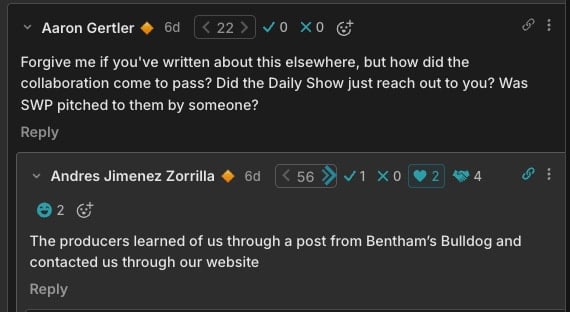Everyone in the community is encouraging people to write here. Yet, many people don’t. Why is that? It can’t be just that they don’t listen well enough. Ones that come to my mind:
- You don’t always want feedback on your ideas, and it can even be harmful. There is a framework that ideas develop as “Philosopher on a hill → Discussing the idea in a small community → Popularizing it” [1]. EA forum is stage 2, and you can’t simply sidestep the stage of independent thinking. Even more, constant posting may dilute your ideas: I have a belief that for exceptional ideas to sparkle, there needs to be an oversaturation of ideas.
- One of the arguments to write is the feedback on ideas. However, you should think if the EA forum is the best feedback you can get. You likely have smarter people in your network than an average EA forum reader, and even though there will be good feedback on a post, it may be that the concentration of useful information you would get from a 1-1 is higher.
- Furthermore, feedback can be harmful even if it is well intended: it can amplify your biases, encourage you to dig in a wrong direction. Don’t forget that the best ideas will get the most opposition. Don’t forget that EA is a bubble.
- Another reason to write for the forum is to get access to opportunities, to network. However, you should think if this is the best source of networking you can have. Write a LinkedIn post instead, maybe.
Open questions that I have:
- When should you create a substack, or write a LinkedIn post, or write a private newsletter instead of an EA forum post?
- Should you post on the forum if you don’t read the forum? (Hot take: reading 17th century literature would give you more insight into current society than the EA forum)
References:



I think the discussions in comments on the forum are probably a better way to get feedback and develop parts of the skill, though obviously long form writing is an additional skill.